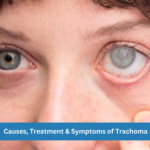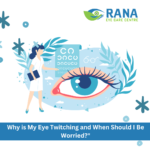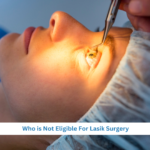How Does Depression Affect Your Eyes?
There’s no need to explain what depression is. About 43 percent of Indians have or have had depression at some point in their lives, according to GOQii’s 2020 poll. Even though it’s labeled a mental illness, it has been shown to have harmful effects on several bodily functions. But what about your eyes when you’re depressed? Yes, it is correct.
New research shows that those with depression are more likely to report losing their vision. Over 10,000 people in the United States who took part in the National Health and Nutrition Examination Survey (NHANES) had their data analyzed by researchers. In the study, 11 percent of those who reported vision loss were depressed, but just 5 percent of people without visual loss were depressed.
Depression, like mental health in general, has several unanswered questions. However, depression has been linked to eye difficulties in at least a few cases, whether the link is direct or indirect. Despite this, the effects can be highly severe and disruptive to your daily routine.
Here are four signs of depression in the eyes:
Light sensitivity
Depression can cause or exacerbate a wide range of other problems. Anxiety, headaches, panic attacks, sensory overloads, etc. People depressed for a long time are more likely to experience light sensitivity as a side effect.
Tears that don’t stop running
People with depression have described dry eye syndrome and the accompanying pain as having excessively watery eyes. Depressed patients are less likely to seek therapies and treatments to alleviate their symptoms, which might lead to worsening symptoms.
Eye spots or floaters
People with depression frequently experience floating spots in their eyes. Even if their eyes are open or closed, they perceive these black or grey patches in their vision that resemble spiderwebs or string.
The hazy vision
A lack of sharpness in one’s eyesight might make it difficult to perceive minute details. Many cases of vision impairment due to depression have been documented, and there is a clear link between depression and vision problems.
What are your options?
Identifying the source of your vision difficulties and whether depression may be a contributing cause should be your first order of business. Eye Doctors can aid patients in determining whether or not depression is causing vision problems and in developing individualized treatment plans. Patients can regain their vision by using the appropriate exercises, medications, therapies, and other treatments. An ophthalmologist can help you manage your symptoms and provide appropriate therapy for eye issues. However, if you are suffering from depression, you should see a mental health expert immediately.






No Comments